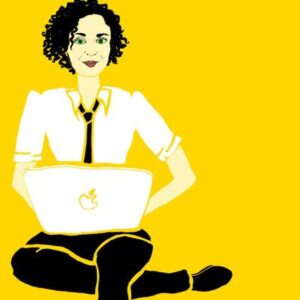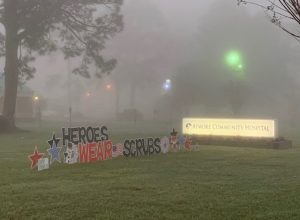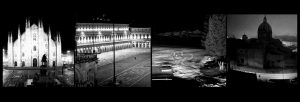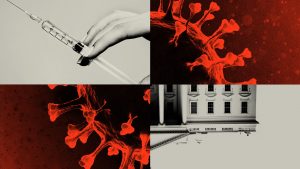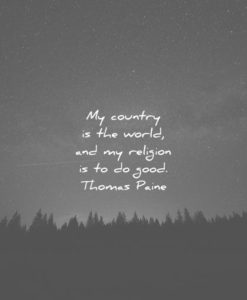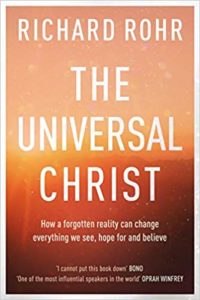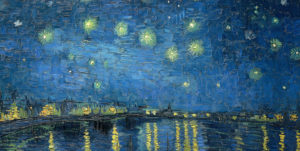Carl Jung
The Year Earth Changed
July 26, 2021‘Narrated by David Attenborough, this timely documentary special takes a look at nature’s extraordinary response to a year of global lockdown. This love letter to planet Earth will take you from hearing birdsong in deserted cities for the first time in decades, to witnessing whales communicating in ways never before seen.
Produced by BBC Studios Natural History Unit, directed by Tom Beard, and executive produced by Mike Gunton and Alice Keens-Soper.’
AppleTV+
“One of the first documentary reflections of our strange times.”
Dayle, here. At once heartbreaking and hopeful. Not hopeful in a passive sense, as in ‘some day,’ but now. Together. Living not in dominance over, but interconnection with our planet, our species, all living beings.
Pause.
Reflect.
Our planet is gorgeous, alive, breathing. Pulsing with birth.
And it is burning. We are destroying it in present tense.
Life is being extinguished. We saw how the earth changed in days, weeks, and months early in global lockdowns WITHOUT the interaction of our destructive beings…humans. Carl Jung: “Man won’t deviate the original pattern of his being.” Is this, then, destruction?
We can give permanent pause, space, quiet, and tender mercies in our practices and consciousness, asking, what can I do in my corner of the sky? (Nod to Valarie Kaur.)
We must.
I had so much hope for our planet, for each other, in the early days of this current pandemic, our isolation. It quickly faded when the pause became political, when health and care became virtue signaling, when science became overridden by misinformation, disinformation, and propaganda, hate, disorder, power, and greed.
As a collective human body the focus became on getting ‘back to normal’ instead of shifting to what’s possible. What’s necessary.
We’re on the edge, balancing destruction with possibility. Let’s choose possibility. All of us.
The food we eat.
The cars we drive.
The Energy we use.
The resources we deplete.
The privilege we strive to achieve at the expense of other.
I want to believe there is still time.
And I want to protect all that thrived when we were silent and away.
Let’s give Gaia a chance to live, heal, and breathe. She’s given us so many.
In the silence, did you hear? Did you hear the birdsong? Did you see the animals congregate and communicate? Did you know the whales could hear again? The Himalayas could be seen again?
The future of the natural world is co-existing. We must do the one thing we can do, interconnected, to shift the planet back to health, as we inadvertently did in our absence, the year earth changed.
#
From Maria Popova, sharing a BBC interview with Carl Jung from 1959:
“…the only danger that exists is man himself — he is the great danger, and we are pitifully unaware of it. We know nothing of man — far too little. We are the origin of all coming evil [30:27].”
John Freeman and his team filmed the interview at Jung’s house at Küsnacht (near Zurich, Switzerland) in march 1959, it was broadcast in Great Britain on october 22, 1959. This film has undouptedly brought Jung to more people than any other piece of journalism and any of Jung’s own writings. Freeman was deputy editor at the “New Statesman” at the time of the interview. They formed a friendship, that continued until Jung’s death. -posted by ‘peacefulness’ on YouTube.
Jung: “We need more psychology, more study of human nature.”
We need Gaia’s nature, she does not need us. -dayle
Endarkment
March 27, 2020“One does not become enlightened by imagining figures of light,” Carl Jung wrote, “but by making the darkness conscious.” Reading this, I realize that in a whole lifetime spent with seekers of enlightenment, I have never once heard anyone speak in hushed tones about the value of endarkenment. -Barbara Taylor Brown, author & Episcopal priest
And so even now, as light gives way to darkness, I know that once again light is born from darkness. Those who read out to help strangers are living out the oneness that is part of our spiritual DNA. -Science of Mind
What are we only now coming “to know” through this time of not-knowing?
Either we will love and help one another or we will hate and attack one another, in which latter case we will all be one another’s hell. Perhaps Sartre was not far wrong in saying that where freedom is abused, society itself turns into heel.. (L’enfer c’est les autres.”) -Thomas Merton
Yuval Noah Harari: the world after coronavirus
This storm will pass. But the choices we make now could change our lives for years to come.
Humankind is now facing a global crisis. Perhaps the biggest crisis of our generation. The decisions people and governments take in the next few weeks will probably shape the world for years to come. They will shape not just our healthcare systems but also our economy, politics and culture. We must act quickly and decisively. We should also take into account the long-term consequences of our actions. When choosing between alternatives, we should ask ourselves not only how to overcome the immediate threat, but also what kind of world we will inhabit once the storm passes. Yes, the storm will pass, humankind will survive, most of us will still be alive — but we will inhabit a different world.
Many short-term emergency measures will become a fixture of life. That is the nature of emergencies. They fast-forward historical processes. Decisions that in normal times could take years of deliberation are passed in a matter of hours. Immature and even dangerous technologies are pressed into service, because the risks of doing nothing are bigger. Entire countries serve as guinea-pigs in large-scale social experiments. What happens when everybody works from home and communicates only at a distance? What happens when entire schools and universities go online? In normal times, governments, businesses and educational boards would never agree to conduct such experiments. But these aren’t normal times.
The coronavirus epidemic is thus a major test of citizenship. In the days ahead, each one of us should choose to trust scientific data and healthcare experts over unfounded conspiracy theories and self-serving politicians. If we fail to make the right choice, we might find ourselves signing away our most precious freedoms, thinking that this is the only way to safeguard our health.
[full read]
https://www.ft.com/content/19d90308-6858-11ea-a3c9-1fe6fedcca75
How the Pandemic Will End
The U.S. may end up with the worst COVID-19 outbreak in the industrialized world. This is how it’s going to play out.
Story by Ed Yong
The testing fiasco was the original sin of America’s pandemic failure, the single flaw that undermined every other countermeasure. If the country could have accurately tracked the spread of the virus, hospitals could have executed their pandemic plans, girding themselves by allocating treatment rooms, ordering extra supplies, tagging in personnel, or assigning specific facilities to deal with COVID-19 cases. None of that happened. Instead, a health-care system that already runs close to full capacity, and that was already challenged by a severe flu season, was suddenly faced with a virus that had been left to spread, untracked, through communities around the country. Overstretched hospitals became overwhelmed. Basic protective equipment, such as masks, gowns, and gloves, began to run out. Beds will soon follow, as will the ventilators that provide oxygen to patients whose lungs are besieged by the virus.
The White House is a ghost town of scientific expertise. A pandemic-preparedness office that was part of the National Security Council was dissolved in 2018. On January 28, Luciana Borio, who was part of that team, urged the government to “act now to prevent an American epidemic,” and specifically to work with the private sector to develop fast, easy diagnostic tests. But with the office shuttered, those warnings were published in The Wall Street Journal, rather than spoken into the president’s ear. Instead of springing into action, America sat idle.
After 9/11, the world focused on counterterrorism. After COVID-19, attention may shift to public health. Expect to see a spike in funding for virology and vaccinology, a surge in students applying to public-health programs, and more domestic production of medical supplies. Expect pandemics to top the agenda at the United Nations General Assembly. Anthony Fauci is now a household name. “Regular people who think easily about what a policewoman or firefighter does finally get what an epidemiologist does,” says Monica Schoch-Spana, a medical anthropologist at the Johns Hopkins Center for Health Security.
The lessons that America draws from this experience are hard to predict, especially at a time when online algorithms and partisan broadcasters only serve news that aligns with their audience’s preconceptions. Such dynamics will be pivotal in the coming months, says Ilan Goldenberg, a foreign-policy expert at the Center for a New American Security. “The transitions after World War II or 9/11 were not about a bunch of new ideas,” he says. “The ideas are out there, but the debates will be more acute over the next few months because of the fluidity of the moment and willingness of the American public to accept big, massive changes.”
[full read]
https://www.theatlantic.com/health/archive/2020/03/how-will-coronavirus-end/608719/
7 Resources for Reliable Information About Coronavirus
1. The World Health Organization
The World Health Organization (WHO) is publishing rolling updates on the coronavirus situation as well as useful infographics and explainers, and should be your first port of call for new assessments of what is going on.
The WHO has also got a really handy page on common coronavirus myths — covering everything from whether eating garlic or taking a bath can help prevent you catching it (they can’t), to discussion about what age people are most susceptible.
2. The National Health Service
The UK’s NHS is another excellent resource. It includes easy to understand advice about symptoms, and what to do if you think you have them.
It also gives details of how and under which circumstances you need to self-isolate, and for how long, and on how to get a self-isolation medical advice note to get to your employer.
3. The BBC Coronavirus Podcast
The British Broadcasting Corporation (BBC) has launched a Coronavirus Global Update podcast, which includes a daily round-up on the spread of coronavirus.
It also includes reports from affected areas, details of the latest medical information, and the impact on health, business, and travel.
4. COVID-19 Facts
The COVID-19 Facts website works to collate information from sources including the London School of Hygiene and Tropical Medicine, the World Health Organization, and the Economist Intelligence Unit.
It also features a series covering myths around coronavirus, including analysis by the Economist Intelligence Unit of where the myth came from, and what experts say about it.
5. The New Scientist Podcast
The New Scientist podcast is becoming increasingly focused on COVID-19 — including episodes and pandemic preparations; the spread of COVID-19 and the importance of hand washing; the coronavirus vaccine; and a coronavirus special on disaster preparation and environmental change.
6. The Bill & Melinda Gates Foundation
The content platform of the Bill & Melinda Gates Foundation, the Optimist, is sharing stories, research, and news stories about coronavirus from the Foundation.
The platform works to convene expert voices from across the global health sector, including sharing expert perspectives and updates on the response to COVID-19 — and you can also sign up for the Optimist’s news digest.
7. The London School of Hygiene and Tropical Medicine
The LSHTM launched its new podcastLSHTM Viral in January 2020, in response to the outbreak of COVID-19, and is releasing a new episode every week. It specifically focuses on the science behind outbreaks and how we respond to them.
Meanwhile, the LSHTM is also launching an online short course, for those who want to better understand the emergence of COVID-19, and how we respond to it moving forward.
The free-of-charge course launches on March 23, and will cover topics like: how COVID-19 emerged and was identified; public health measures worldwide; and what’s needed to address COVID-19 in the future.
Given that everything is going to be the way it’s going to be, we’re left with an actually useful and productive question instead: “What are you going to do about it?”
-Seth Godin
Anticipatory grief.
Stocking up on compassion.
Name it.
That Discomfort You’re Feeling Is Grief
Harvard Business Review
Anticipatory grief is the mind going to the future and imagining the worst. To calm yourself, you want to come into the present.
Finally, it’s a good time to stock up on compassion. Everyone will have different levels of fear and grief and it manifests in different ways. A coworker got very snippy with me the other day and I thought, That’s not like this person; that’s how they’re dealing with this. I’m seeing their fear and anxiety. So be patient. Think about who someone usually is and not who they seem to be in this moment.
When you name it, you feel it and it moves through you. Emotions need motion. It’s important we acknowledge what we go through.
It’s absurd to think we shouldn’t feel grief right now. Let yourself feel the grief and keep going.
https://hbr.org/2020/03/that-discomfort-youre-feeling-is-grief
Interspiritual Mysticism
August 9, 2019‘Each of us brings a lifetime of experiences to this moment, our perspectives colored by our individual history. No one is worthier than another. Relaxing, I can simply let everyone be, knowing we’re all doing the best we can where we are now.’
Richard Rohr, Center for Action & Contemplation:
Now this new epistemology is emerging all over the world and in all denominations and religions. I pray it will thrive and grow so we can heal the planet’s suffering before we’ve done irreparable damage.
Episcopal priest and friend Matthew Fox writes:
The crises we find ourselves in as a species require that as a species we shake up all our institutions—including our religious ones—and reinvent them. Change is necessary for our survival, and we often turn to the mystics at critical times like this. Jung said: “Only the mystics bring creativity into religion.” [1] Jesus was a mystic shaking up his religion and the Roman empire; Buddha was a mystic who shook up the prevailing Hinduism of his day; Gandhi was a mystic shaking up Hinduism and challenging the British Empire; and Martin Luther King, Jr. shook up his tradition and America’s segregationist society. The mystics walk their talk and talk (often in memorable poetic phraseology) their walk. [2]
How do we find the path forward? Howard Thurman (1900–1981), a mystic who sought to make peace between religions and founded the first major interracial, interfaith church in the United States, urged people to “listen for the sound of the genuine.” Read these excerpts from one of Thurman’s talks several times to fully appreciate it:
There is something in everyone of you that waits, listens for the sound of the genuine in yourself and if you can not hear it, you will never find whatever it is for which you are searching and if you hear it and then do not follow it, it was better that you had never been born. . . .
Sometimes there is so much traffic going on in your minds, so many different kinds of signals . . . and you are buffeted by these and in the midst of all of this you have got to find out what your name is. Who are you? . . .
Now there is something in everybody that waits and listens for the sound of the genuine in other people. . . . I must wait and listen for the sound of the genuine in you. . . .
Now if I hear the sound of the genuine in me and if you hear the sound of the genuine in you it is possible for me to go down in me and come up in you. So that when I look at myself through your eyes having made that pilgrimage, I see in me what you see in me and the wall that separates and divides will disappear and we will become one because the sound of the genuine makes the same music. [3]
[1] C. G. Jung, Mysterium Coniunctionis: An Inquiry into the Separation and Synthesis of Psychic Opposites in Alchemy, trans. R. F. C. Hull (Pantheon Books: 1963), 375.
[2] Matthew Fox, Christian Mystics: 365 Readings and Meditations (New World Library: 2011), 2-3. Learn more about Fox and his daily online reflections at dailymeditationswithmatthewfox.org.
[3] Howard Thurman, “The Sound of the Genuine,” Baccalaureate Address, Spelman College (May 4, 1980). Text edited by Jo Moore Stewart, Spelman Messenger, vol. 96, no. 4 (Summer 1980), 14-15. Digital version available at http://digitalcommons.auctr.edu/scmessenger/546/.
Adapted from Richard Rohr, The Universal Christ: How a Forgotten Reality Can Change Everything We See, Hope For, and Believe (Convergent Books: 2019), 205.
‘Fr. Richard Rohr is a globally recognized ecumenical teacher bearing witness to the universal awakening within Christian mysticism and the Perennial Tradition. He is a Franciscan priest of the New Mexico Province and founder of the Center for Action and Contemplation (CAC) in Albuquerque, New Mexico. Fr. Richard’s teaching is grounded in the Franciscan alternative orthodoxy—practices of contemplation and self-emptying, expressing itself in radical compassion, particularly for the socially marginalized.’
‘All gave some, some gave all.’
May 27, 2019John Adams: ‘Remember, democracy never lasts long. It soon wastes, exhausts, and murders itself. There never was a democracy yet that did not commit suicide.’
~
In a time when everything was being swept away, when “the whole world is becoming a giant concentration camp,” [Etty Hillesum] felt one must hold fast to what endures—the encounter with God at the depths of one’s own soul and in other people.
-Robert Ellsberg, All Saints: Daily Reflections on Saints, Prophets, and Witnesses for Our Time
To follow their own paths to wholeness, both Swiss psychoanalyst Carl Jung (1875–1961) and Jewish Auschwitz victim Etty Hillesum (1914–1943) trusted in and hearkened to the voice of God in their deepest Selves.
When accusers called Joan of Arc (1412–1431) the victim of her own imagination, she is frequently credited with this brilliant reply: “How else would God speak to me?”
Intuitive truth, that inner whole-making instinct, just feels too much like our own thoughts and feelings, and most of us are not willing to call this “God,” even when that voice prompts us toward compassion instead of hatred, forgiveness instead of resentment, generosity instead of stinginess, bigness instead of pettiness.
Late in his life, Jung wrote, “In my case Pilgrim’s Progress consisted in my having to climb down a thousand ladders until I could reach out my hand to the little clod of earth that I am.” Jung, a supposed unbeliever, knew that any authentic God experience takes a lot of humble, honest, and patient seeking.
-Fr. Richard Rohr
[From a letter to a pupil (April 9, 1959). See C. G. Jung Letters, Vol. 1: 1906-1950,selected and edited by Gerhard Adler.]
Sri Lanka.
April 22, 2019Vocatus atque non vocatus, Deus aderit, “Invoked or not invoked, God is still present.”
-CG Jung
♡
‘…the ‘whole-making spirit.’
March 17, 2018☆The life pouring through us, pumping our heart and breathing through our lungs, did not begin at our birth or conception. Like every particle in every atom and molecule of our bodies, it goes back through time to the first splitting and spinning of the stars. —Joanna Macy
☆Our inner spiritual world cannot be activated without experience of the outer world of wonder for the mind, beauty for the imagination, and intimacy for the emotions. —Thomas Berry
Viriditas
Richard Rohr:
Long ago, St. Hildegard of Bingen (1098-1179), named a Doctor of the Church in 2012, communicated creation spirituality through music, art, poetry, medicine, gardening, and reflections on nature. She wrote in her famous book, Scivias:
You understand so little of what is around you because you do not use what is within you.
This is key to understanding Hildegard and is very similar to Teresa of Ávila’s understanding of the soul. Without using the word, Hildegard recognized that the human person is a microcosm with a natural affinity for or resonance with its macrocosm, which many call God. Our little world reflects the big world. The key word here is resonance. Contemplative prayer allows your mind to resonate with what is visible and right in front of you. Contemplation erases the separateness between the seer and the seen.
Hildegard often used the word viriditas, the greening of things from within, similar to what we now call photosynthesis. She recognized a readiness in plants to receive the sun and to transform it into energy and life. She also saw an inherent connection between the physical world and the divine Presence. This connection translates into energy that is the soul and seed of everything, an inner voice calling you to “Become who you are; become all that you are.” This is our “life wish” or what Carl Jung called the “whole-making spirit.”
Hildegard is a wonderful example of someone who lives safely inside an entire cosmology, a universe where the inner shows itself in the outer, and the outer reflects the inner, where the individual reflects the cosmos, and the cosmos reflects the individual. Hildegard said, “O Holy Spirit, you are the mighty way in which every thing that is in the heavens, on the earth, and under the earth, is penetrated with connectedness, penetrated with relatedness.” [2] It is truly a Trinitarian universe, with all things whirling toward one another: from orbits, to gravity, to ecosystems, to sexuality.
Indeed, for Hildegard nature was a mirror for the soul and for God. This mirroring changes how we see and experience reality. Later, Bonaventure (1217-1274) wrote: “In the soul’s journey to God we must present to ourselves the whole material world as the first mirror through which we may pass over to the Supreme. “ The Dominican Meister Eckhart (1260-1327) said the same: “If humankind could have known God without the world, God would never have created the world.” [5]
Nature is not a mere scenic backdrop so humans can take over the stage. Creation is in fact a full participant in human transformation, since the outer world is absolutely needed to mirror the true inner world. There are not just two sacraments, or even seven; the whole world is a sacrament.
[Meister Eckhart, The Complete Mystical Works of Meister Eckhart, ed. Maurice O’Connell Walshe, rev. Bernard McGinn (New York: The Crossroad Publishing Company, 2009), 275.]
When we look down on the Earth from space, we see this amazing, indescribably beautiful planet. It looks like a living, breathing organism. But it also at the same time, looks extremely fragile.—Ron Garan, NASA Astronaut
I have set before you life and death, therefore choose life. —Deuteronomy 30:19
